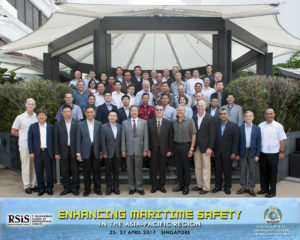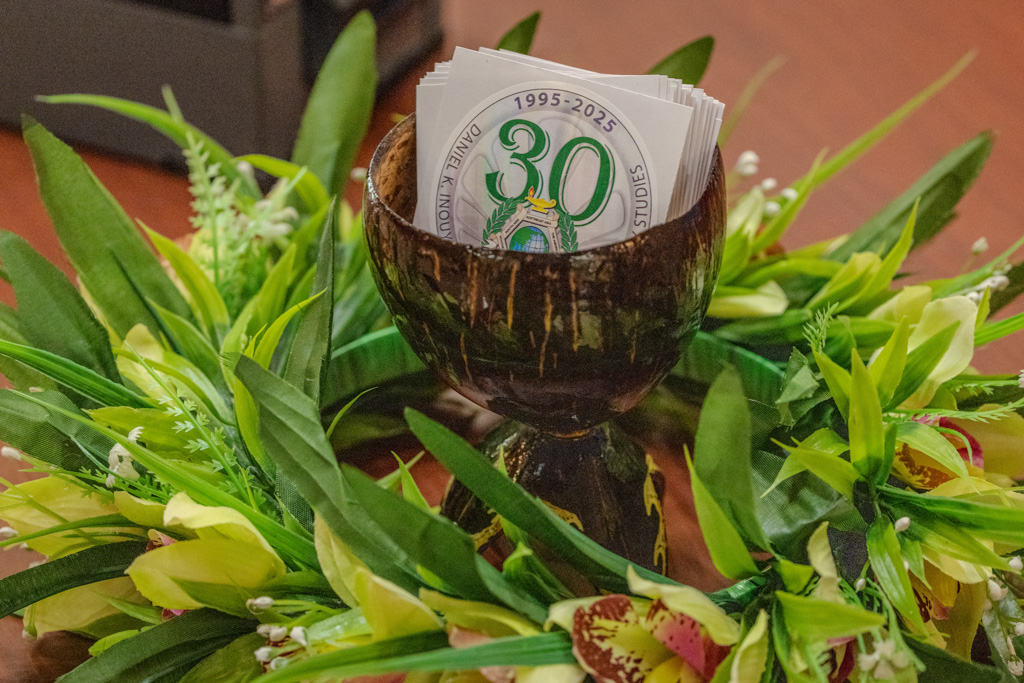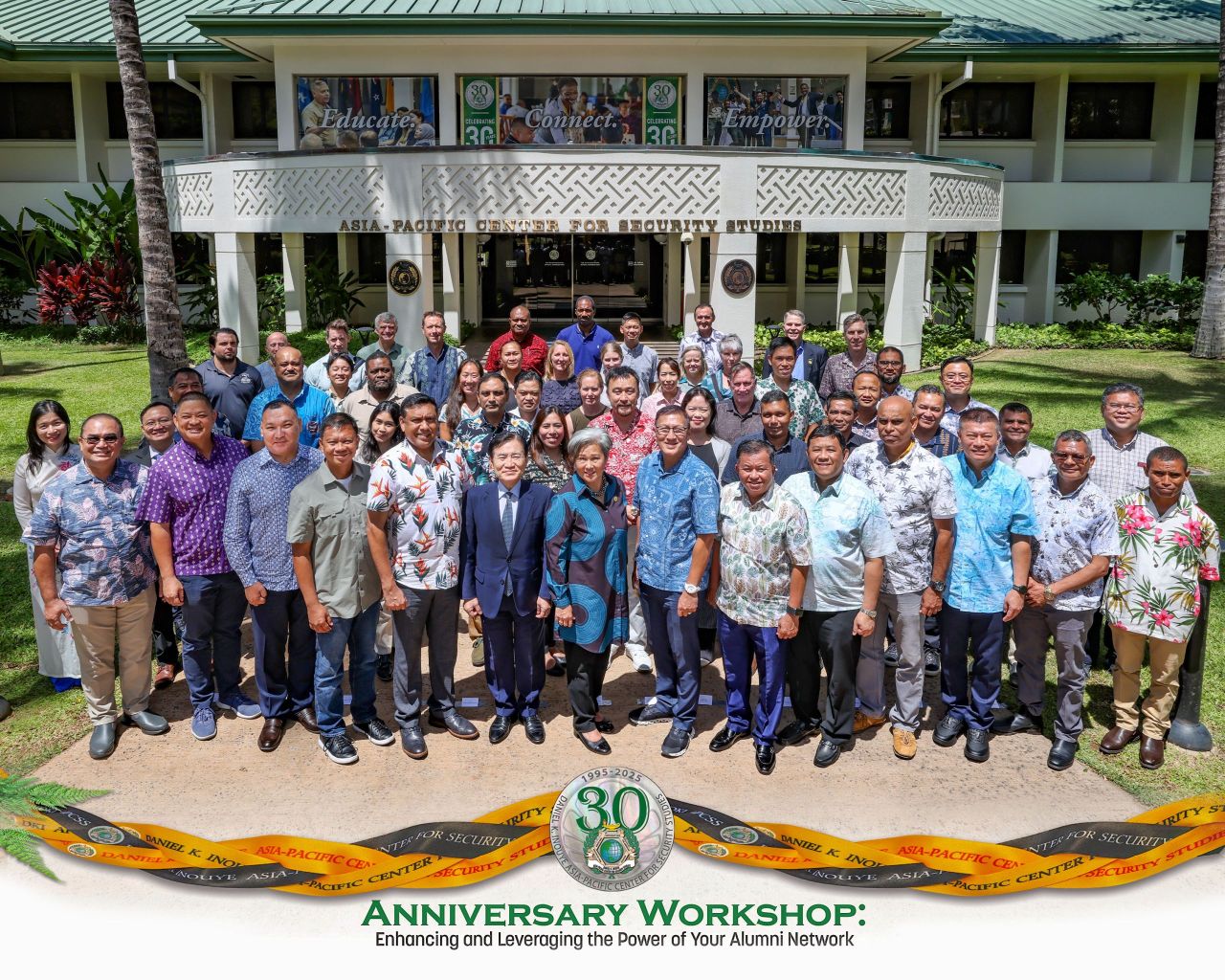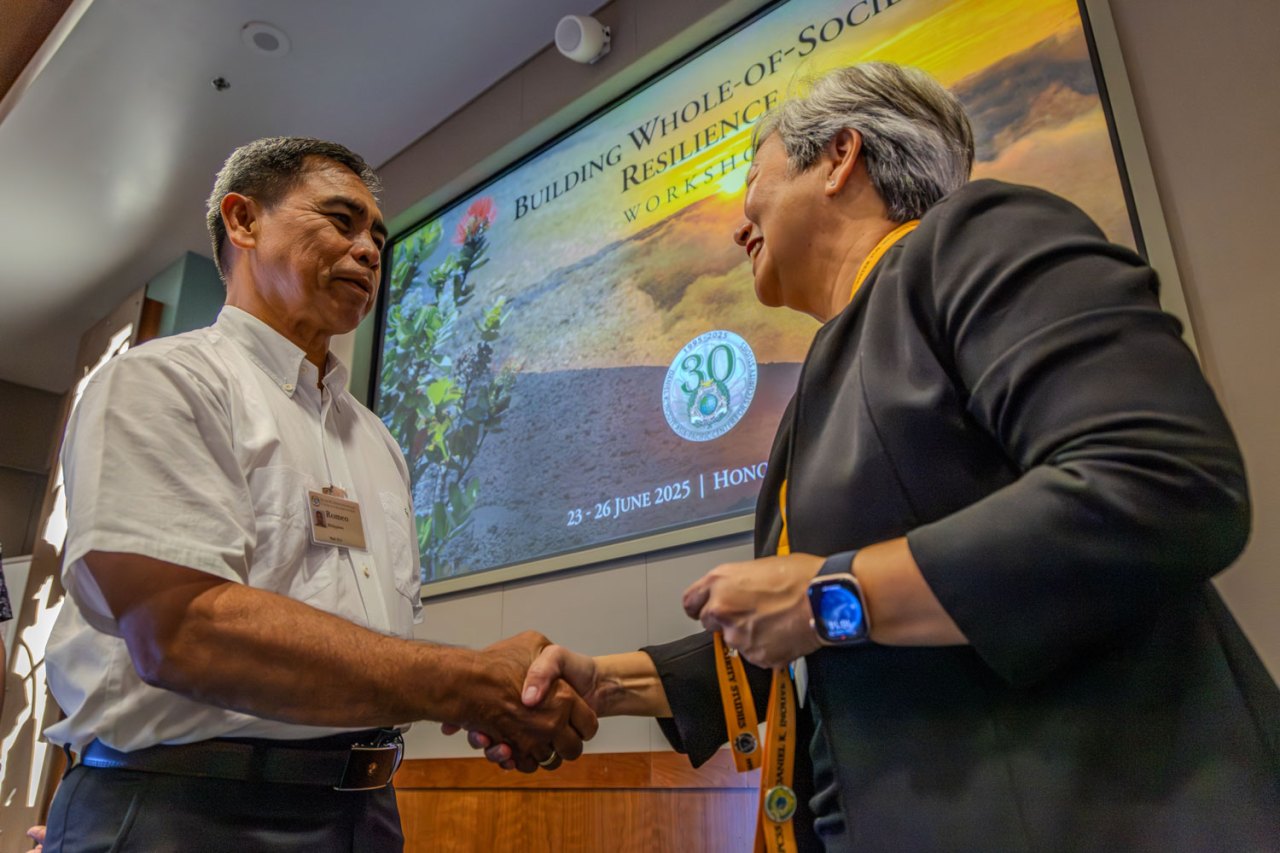 The territorial and maritime disputes in the Asia-Pacific region are, by definition, a complex security problem. Like any complex problem in international relations, this means that these disputes will not be resolved in the foreseeable future, but must instead be managed effectively.
The territorial and maritime disputes in the Asia-Pacific region are, by definition, a complex security problem. Like any complex problem in international relations, this means that these disputes will not be resolved in the foreseeable future, but must instead be managed effectively.
One way to manage the overall maritime situation is by addressing matters of common interest, instead of areas of differences. Another way is by focusing on practical and technical discussions among the nations’ experts, and steering away from political and other sensitive topics.
Within the Asia-Pacific region, claimant nations and non-claimant nations have a number of converging interests. In particular, they share an interest in ensuring that commerce and economic development are unimpeded. This interest includes avoiding unsafe incidents at sea that could impact commercial shipping within and beyond the region.
Additionally, these nations share an interest in maintaining peace and stability in the region. This interest includes reducing the likelihood that a localized maritime incident between two or more military, government, and/or non-government vessels might result in a loss of life and significant property damage, or escalate into a situation having strategic effects (e.g., damaging the relations between the nations involved or spiraling into an armed conflict).
To promote safe behavior at sea within the Asia-Pacific region, DKI APCSS brought together maritime security practitioners from the Asia-Pacific region for a first-of-its-kind “Enhancing Maritime Safety” workshop, April 25-27. The forum was co-sponsored by S. Rajaratnam School of International Studies (RSIS), an institution that is highly-respected in not only the Asia-Pacific region, but around the world. The workshop was convened in Singapore, a hub of maritime activity in the heart of the Asia-Pacific region.
The workshop sought to enhance safe behavior among vessels in the oceans of the Asia-Pacific region and build confidence among the participating nations on the converging interest of maritime safety.
“It is important to realize that there is no international court having universal jurisdiction over unsafe incidents at sea,” stated Commander Jonathan G. Odom, Judge Advocate General’s Court, U.S. Navy. Commander Odom is a military professor at DKI APCSS and served as the Center’s Academic Lead for the workshop. “Given that reality, we think that one of the best ways to reduce the risk of unsafe incidents at sea is by helping to ensure that each nation effectively implements the international standards of navigational safety into their national governance systems,” Odom added.
Maritime security practitioners and government academics from ten nations participated in the workshop, including Australia, People’s Republic of China, Indonesia, Japan, Republic of Korea, Malaysia, Philippines, Singapore, United States, and Vietnam. Workshop discussions were facilitated by faculty members from DKI APCSS and RSIS.
The forum was designed to facilitate technical discussions and information sharing between the participants. The agenda of the workshop focused specifically on how nations implement the existing international standards for navigational safety with respect to three categories of vessels: (1) Navy ships, (2) Coast Guard (or equivalent) ships, and (3) non-government vessels (e.g., fishing boats). These existing international standards include the 1972 Convention on the International Regulations for Preventing Collisions at Sea (also known as the “COLREGs”) and the 2014 Code for Unplanned Encounters at Sea (also known as the “CUES”).
Prior to the workshop, each nation’s workshop team was required to answer a detailed questionnaire on how they have implemented these international standards for navigational safety.
To open the workshop, the participants had the privilege to hear insights from Mr. Koji Sekimizu. A citizen of Japan, Mr. Sekimizu is the Secretary-General Emeritus of the International Maritime Organization (IMO), which oversees the 1972 COLREGs and other multilateral treaties related to maritime safety. Currently, he is a Distinguished Visiting Fellow for RSIS and Singapore’s Maritime and Port Authority (MPA). Mr. Sekimizu’s keynote address for the workshop was focused on the strategic importance of maritime safety.
During the workshop, the participants were organized into three breakout discussion groups based upon their professional specialties. These included: (1) experts who administer Navy vessels and personnel, (2) experts who administer Coast Guard or equivalent vessels and personnel, and (3) experts who administer non-government vessels such as fishing boats. In the breakout sessions, the participants shared insights on how their governments have implemented these international standards within their respective maritime agencies. After each breakout session, the participants reconvened as a larger group and shared trends and best practices for implementation.
At the beginning and end of the workshop, DKI APCSS elicited the personal views of participants through anonymous group polling, one of the Center’s mainstay methods for assessing perspectives on security issues in the region. When polled, the workshop participants responded overwhelmingly that:
- The most-likely encounter to create a navigational safety situation in the Asia-Pacific region during both the next year and the next five years would be one involving a Coast Guard (or equivalent) ship of one nation and a fishing boat of another nation.
- The two best ways to improve adherence to the international standards of navigational safety are (1) national laws, policies, and directives, combined with (2) stringent qualification and certification requirements for their government and non-government mariners.
- CUES currently applies to only the region’s Navies, but the use of CUES should be expanded to the region’s Coast Guards, either through broadening the existing Code or through a new Code developed specifically for Coast Guards.
Additionally, the end-of-workshop polling of the participants confirmed that the event’s discussions helped them to see that many of the nations of the region take seriously these international standards for navigational safety.
The workshop marked the beginning of a dialogue and reciprocal exchange of information, rather than an end. Following the workshop, each of the ten workshop teams are to receive the Implementation Questionnaire responses from the other nine workshop teams. Sharing these Questionnaire responses among the participants will help to identify ways for them to improve implementation within their respective governments. Additionally, it should help to promote internal accountability within each participant nation and build mutual confidence among those nations.
“Trust is not something that can be developed overnight,” stated Commander Odom. “Trust can come only from deliberate efforts to build confidence over an extended period of time.” He added, “Governments are not inanimate objects, but rather organizations composed of people. Since trust and confidence are human qualities, our hope is that the confidence built between the workshop participants is a step in the right direction towards building confidence among the participants’ governments and, ultimately, trust among their nations.”
“There might be a strategic trust deficit at the highest political levels between some nations in the region, which will take time to address,” echoed Dr. Collin Koh. Koh is a research fellow with the RSIS Maritime Security Programme and served as the Academic Co-Lead for the Workshop. But Dr. Koh added, “At least it would be essential for maritime practitioners to foster operational-tactical confidence-building – an exercise which would potentially help ameliorate misunderstanding on scene if any of these participating agencies ever find themselves facing off their regional counterparts in times of tensions.”
From an institutional perspective, the event also provided an opportunity for DKI APCSS and RSIS to work together on fostering regional dialogues on security matters important to the region. The two institutions already have plans to cooperate on several other security forums in the coming year.
-END-









Leave A Comment